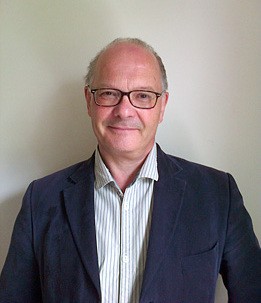
David Cottington
How to Speak Correct French: The Dialects of Cubism
Lecture by David Cottington
13.9 2013
Stockholm
How to Speak Correct French: The Dialects of Cubism
Lecture by Professor David Cottington
Date: 13 September 2013
Time: at 14.00
Place: In the Pontus Hultén Study Gallery, the lecture continues in the collections of Moderna Museet
Language: In English
Admission free
David Cottington, Professor of Modern Art History at Kingston University, London, is a leading expert on cubism. He has published several books on the subject, for example Cubism in the Shadow of War: The Avant-Garde and Politics in Paris, 1905 ̶ 1914 (Yale, 1998), Cubism (Tate, 1998), Cubism and its Histories (Manchester, 2004) and Modern Art: A Very Short Introduction (Oxford, 2005). Among many articles the latest is ‘The Formation of the Avant-Garde in Paris and London, c1880 ̶ 1915’ in Art History, June 2012. He has also recently published The Avant-Garde: A Very Short Introduction, a volume in the Very Short Introductions published by the Oxford University Press (January 2013).
Cottington has become increasingly interested in the artistic ‘avant-garde’, both as a concept and a historical formation. He is currently working on a book for Yale University Press, entitled A Tale of Two Cities; the Formations of the Avant-Garde in Paris and London, c1895-1915, it will explore the differences, and relations, between the discourses and institutional developments that shaped the emergence and consolidation of these formations. This project is preliminary to a proposed international collaborative project, mapping this emergence and consolidation, on a European (and ultimately global) scale. This will identify a number of key typologies of the avant-garde groupings that appeared in the capital cities of Europe and North and South America in the pre-First World war period.”
